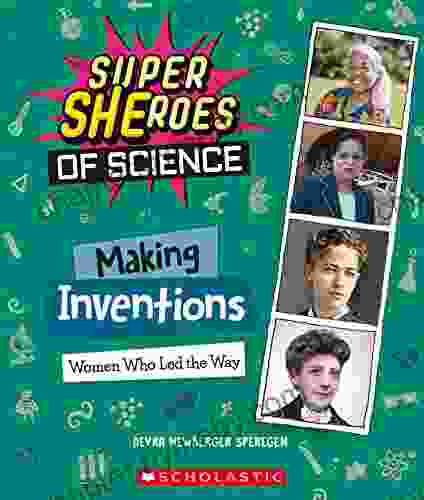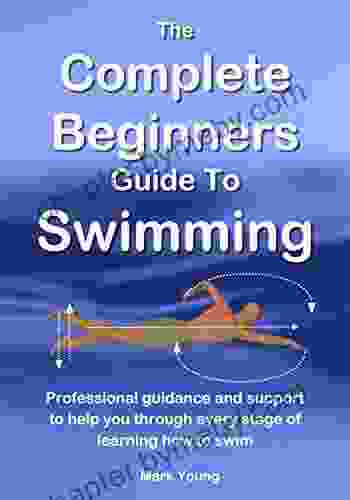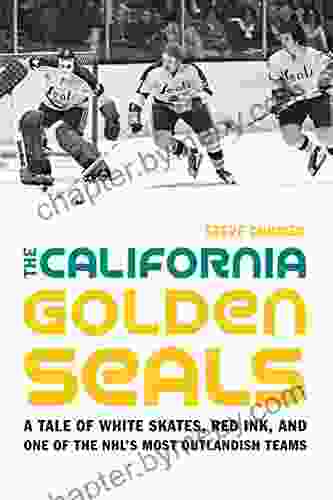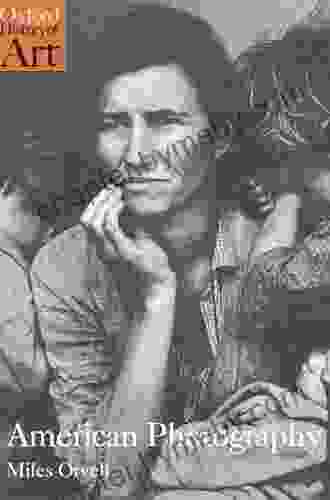Women Who Led the Way: Super Sheroes of Science

Throughout history, women have made significant contributions to science, technology, engineering, and mathematics (STEM). Despite facing discrimination and prejudice, these women persevered and made groundbreaking discoveries that have changed the world.
4.7 out of 5
| Language | : | English |
| File size | : | 11459 KB |
| Print length | : | 48 pages |
| Lending | : | Enabled |
| Screen Reader | : | Supported |
In this article, we will meet some of the most inspiring women scientists who have led the way. These women overcame incredible odds to make their mark on science and inspire generations to come.
Marie Curie
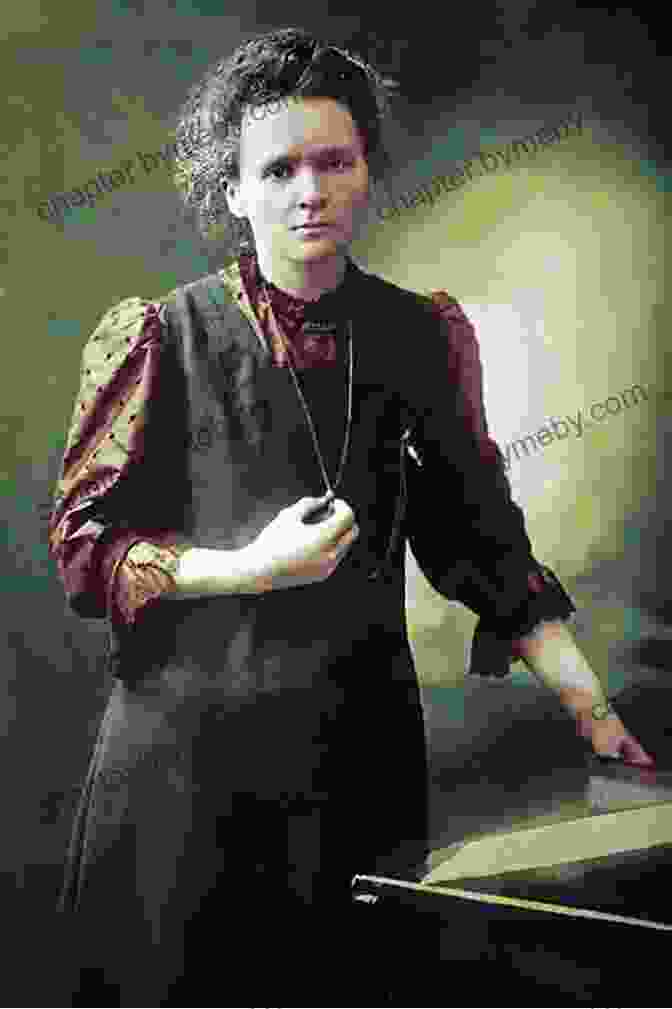
Marie Curie was a Polish and naturalized-French physicist and chemist who conducted pioneering research on radioactivity. She was the first woman to win a Nobel Prize, and the only person to win the Nobel Prize in two different scientific fields.
Curie's research on radioactivity led to the discovery of two new elements, polonium and radium. She also developed techniques for isolating radioactive isotopes, and she studied the effects of radiation on living cells.
Curie's work had a profound impact on science and medicine. Her discoveries led to the development of new medical treatments, and her research on radioactivity helped to pave the way for the development of nuclear energy.
Rosalind Franklin
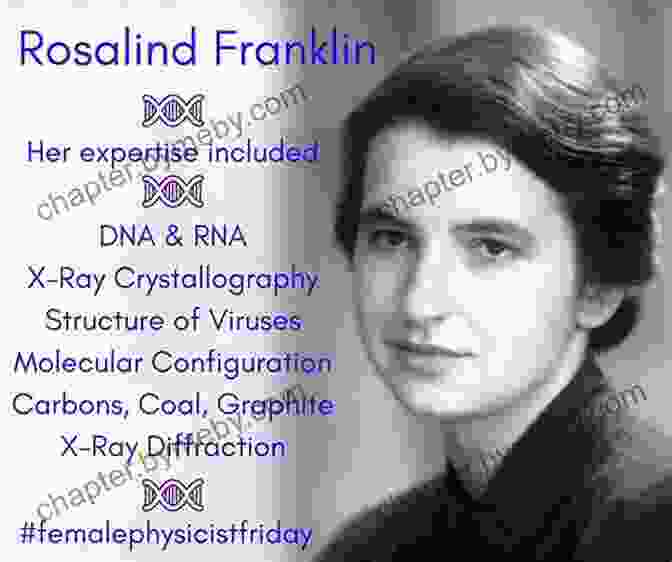
Rosalind Franklin was an English chemist and X-ray crystallographer who made significant contributions to the understanding of the molecular structures of DNA, RNA, viruses, coal, and graphite.
Franklin's most famous work was her X-ray diffraction images of DNA. These images provided key evidence for the double helix structure of DNA, which was later proposed by James Watson and Francis Crick.
Franklin's work on DNA was groundbreaking, but she did not receive the credit she deserved during her lifetime. She died of ovarian cancer at the age of 37, and her contributions to science were not fully recognized until after her death.
Barbara McClintock
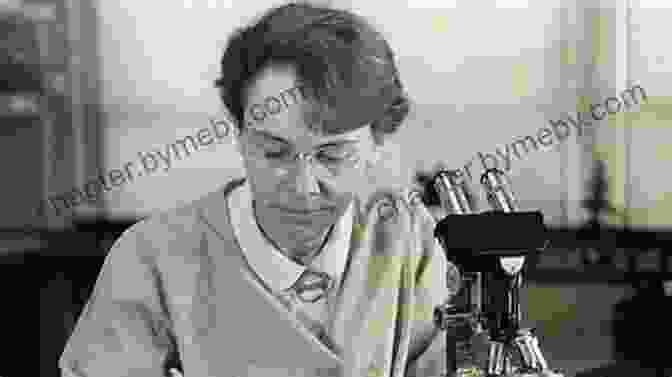
Barbara McClintock was an American geneticist and cytogeneticist who was awarded the Nobel Prize in Physiology or Medicine in 1983 for her discovery of transposons.
McClintock's work on transposons led to a new understanding of how genes are regulated. She showed that transposons can move around the genome, and that this movement can affect the expression of genes.
McClintock's work was groundbreaking, but it was not fully recognized until later in her career. She was often criticized for her unconventional ideas, and she was not promoted to full professor until she was 60 years old.
Lise Meitner
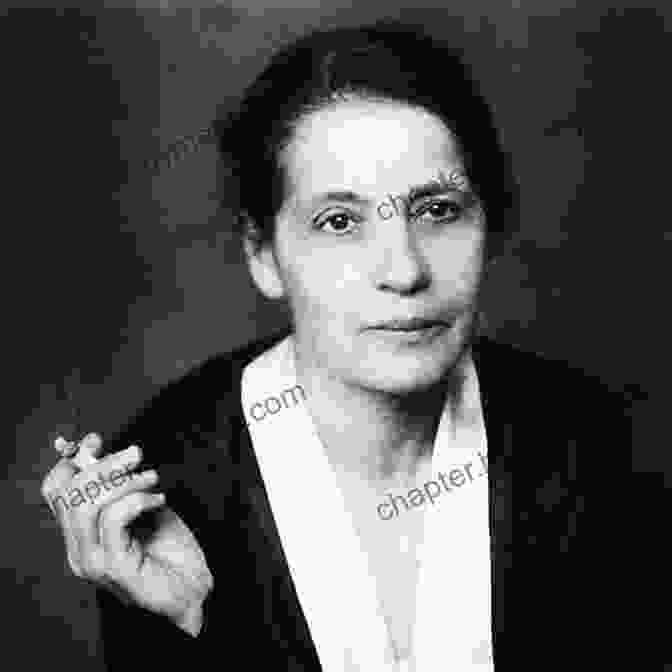
Lise Meitner was an Austrian physicist who was part of the team that discovered nuclear fission. She was also the first woman to be appointed to a full professorship in physics in Germany.
Meitner's work on nuclear fission was groundbreaking, but she did not receive the credit she deserved during her lifetime. She was forced to flee Germany in 1938 because she was Jewish, and she was never able to return.
Meitner's work on nuclear fission was essential to the development of the atomic bomb. However, she was a pacifist, and she later spoke out against the use of nuclear weapons.
Emmy Noether

Emmy Noether was a German mathematician who made significant contributions to algebra, number theory, and mathematical physics. She is considered one of the most important mathematicians of the 20th century.
Noether's work on abstract algebra led to the development of new algebraic structures, such as rings and fields. She also made important contributions to number theory, and her work on algebraic geometry has been used to solve problems in physics.
Noether was a brilliant mathematician, but she faced discrimination because she was a woman. She was denied a professorship at the University of Göttingen because she was a woman, and she was never able to obtain a full professorship during her lifetime.
The women scientists profiled in this article are just a few of the many women who have made significant contributions to STEM throughout history. These women overcame incredible odds to make their mark on science, and they continue to inspire generations of scientists to come.
4.7 out of 5
| Language | : | English |
| File size | : | 11459 KB |
| Print length | : | 48 pages |
| Lending | : | Enabled |
| Screen Reader | : | Supported |
Do you want to contribute by writing guest posts on this blog?
Please contact us and send us a resume of previous articles that you have written.
 Book
Book Novel
Novel Page
Page Chapter
Chapter Text
Text Story
Story Genre
Genre Reader
Reader Library
Library Paperback
Paperback E-book
E-book Magazine
Magazine Newspaper
Newspaper Paragraph
Paragraph Sentence
Sentence Bookmark
Bookmark Shelf
Shelf Glossary
Glossary Bibliography
Bibliography Foreword
Foreword Preface
Preface Synopsis
Synopsis Annotation
Annotation Footnote
Footnote Manuscript
Manuscript Scroll
Scroll Codex
Codex Tome
Tome Bestseller
Bestseller Classics
Classics Library card
Library card Narrative
Narrative Biography
Biography Autobiography
Autobiography Memoir
Memoir Reference
Reference Encyclopedia
Encyclopedia Mickael Launay
Mickael Launay Melanie Kirkpatrick
Melanie Kirkpatrick Peggy Guggenheim
Peggy Guggenheim Libba Bray
Libba Bray Mary Jane Sterling
Mary Jane Sterling Merlin Tuttle
Merlin Tuttle Project Management Institute
Project Management Institute Paola Opal
Paola Opal Steve Currier
Steve Currier Melissa Cleeman
Melissa Cleeman Megan Stine
Megan Stine Mejor Acuario
Mejor Acuario Mary Anne Dorward
Mary Anne Dorward Tjio Kayloe
Tjio Kayloe Robin Ratchford
Robin Ratchford Mike Curato
Mike Curato Mickey Mccool
Mickey Mccool Michael Port
Michael Port Philip S Harrington
Philip S Harrington Paul Nash
Paul Nash
Light bulbAdvertise smarter! Our strategic ad space ensures maximum exposure. Reserve your spot today!

 Herbert CoxSenior Transitions 101: A Comprehensive Guide to Navigating the Challenges of...
Herbert CoxSenior Transitions 101: A Comprehensive Guide to Navigating the Challenges of... Isaac MitchellFollow ·5.9k
Isaac MitchellFollow ·5.9k Jules VerneFollow ·10.2k
Jules VerneFollow ·10.2k Jim CoxFollow ·10.1k
Jim CoxFollow ·10.1k Russell MitchellFollow ·8.4k
Russell MitchellFollow ·8.4k Isaac BellFollow ·14.8k
Isaac BellFollow ·14.8k Andrew BellFollow ·7.7k
Andrew BellFollow ·7.7k John ParkerFollow ·16.1k
John ParkerFollow ·16.1k Stephen FosterFollow ·17.8k
Stephen FosterFollow ·17.8k

 Henry James
Henry JamesCold War Fighter Pilot Story: A Captivating Tale of...
Enter the Cockpit of...

 Rudyard Kipling
Rudyard KiplingYour Body Your Baby Your Choices: The Essential Guide to...
Pregnancy and...

 Fabian Mitchell
Fabian MitchellMichelle Obama: An Intimate Portrait - A Must-Read for...
Michelle Obama is a prominent figure in...
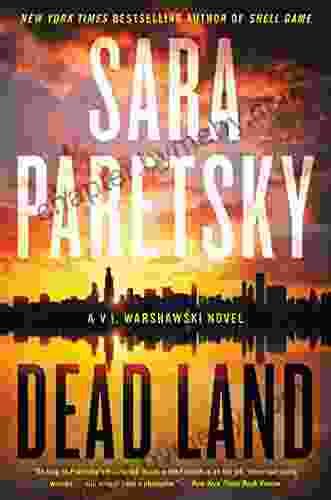
 Juan Butler
Juan ButlerUncover the Secrets of the Dead Land Warshawski Novels
Prepare to delve...
4.7 out of 5
| Language | : | English |
| File size | : | 11459 KB |
| Print length | : | 48 pages |
| Lending | : | Enabled |
| Screen Reader | : | Supported |


